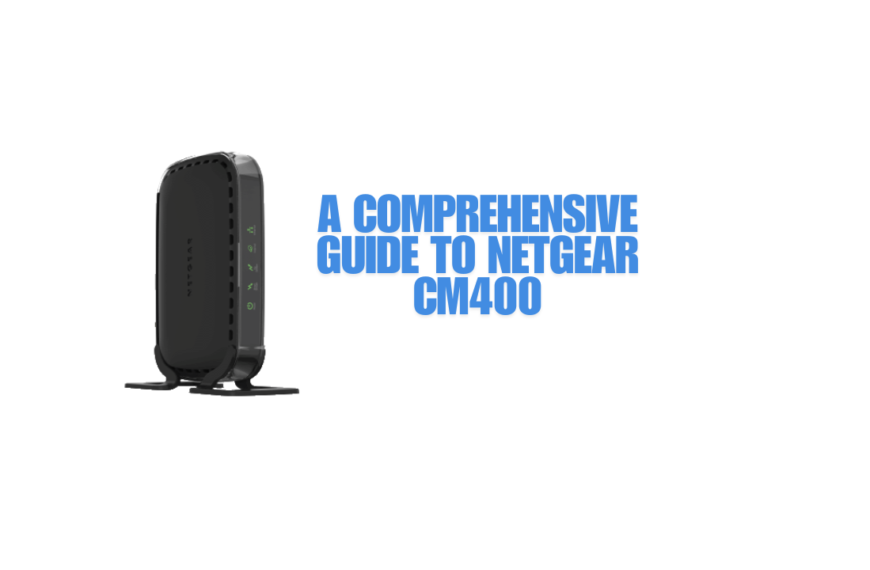Selling your house is a significant milestone, and deciding to do it privately can feel both exciting and daunting. Without a real estate agent to guide you, you’re taking on the challenge of navigating pricing, marketing, legalities, and negotiations independently. While the process can seem overwhelming at first, selling privately also presents unique opportunities that make it an appealing option for many homeowners.
One of the most significant benefits of selling your house privately is the potential to save on real estate agent commissions. With agents typically charging a percentage of the sale price, eliminating this expense can mean thousands of dollars saved. Additionally, selling privately gives you complete control over the process. From setting the price to marketing your property and negotiating with buyers, you can make decisions that align with your priorities and timelines.
However, the key to success lies in preparation. To help you navigate the process confidently, this article outlines six actionable tips to streamline your private sale. From pricing your property correctly to leveraging effective marketing strategies, these steps are designed to simplify the journey and help you achieve a successful and rewarding sale.
1. Set the Right Price
Setting the right price is one of the most crucial steps when selling your house privately. A well-priced property attracts potential buyers, speeds up the sale process, and ensures you get fair market value. On the other hand, an overpriced house might sit on the market for too long, discouraging buyers, while underpricing could mean leaving money on the table.
Understanding Local Market Trends
To determine the right price, start by gaining a solid understanding of the real estate market in your area. Property prices are influenced by factors like demand, supply, economic conditions, and seasonal trends. For instance, a seller’s market, where demand outweighs supply, might allow you to price your home slightly higher. Conversely, in a buyer’s market, you may need to price competitively to stand out.
Steps to Research Property Values
- Utilize Online Tools: Use property valuation tools available on real estate websites. These tools give an estimate based on recent sales in your area.
- Compare Similar Properties: Look at recently sold homes in your neighborhood with similar features, such as size, number of bedrooms, and lot size. These “comps” provide a realistic benchmark for pricing your house.
- Check Active Listings: Observe the pricing of similar houses currently on the market. These listings reveal what buyers in your area are considering.
- Account for Your Home’s Unique Features: Highlight upgrades, renovations, or distinctive aspects of your property that could justify a higher price compared to similar homes.
Tips for Determining a Competitive Price
- Be Realistic: Avoid setting a price based purely on emotional attachment or the amount you hope to make. Focus on what buyers are willing to pay.
- Consider a Pre-Sale Appraisal: Hiring a professional appraiser can provide an unbiased assessment of your property’s market value.
- Factor in Selling Costs: While selling privately saves on agent fees, you’ll still need to account for costs like advertising, legal fees, or minor repairs when setting your price.
- Start with a Strategic Price: Aim for a price slightly below the highest comparable sale in your area. This can generate interest and potentially lead to multiple offers.
By setting a competitive and realistic price, you lay the foundation for a smooth and successful sale. With a clear understanding of local market trends and the right research, you can confidently proceed to the next step: preparing your house for sale.
2. Prepare Your House for Sale
Once you’ve determined the right price for your property, the next step is to prepare your house to make it as appealing as possible to potential buyers. A well-prepared home creates a strong first impression, increases perceived value, and helps buyers envision themselves living there. Here’s how to get your house ready for a successful private sale.
Decluttering to Maximize Space and Appeal
The first step in preparing your home is decluttering. Over time, homes tend to accumulate personal belongings, furniture, and other items that can make spaces feel cramped and overly personalized. Decluttering helps to:
- Make rooms look larger and more functional.
- Allow buyers to focus on the home’s features rather than the items inside it.
- Create a blank slate that makes it easier for buyers to imagine their own belongings in the space.
Start by sorting your belongings into three categories: keep, donate, and discard. Store away personal items like family photos and memorabilia to maintain a neutral atmosphere. Minimalistic and open spaces are more inviting and attractive to potential buyers.
Importance of Deep Cleaning and Minor Repairs
Once your home is decluttered, give it a deep clean. Cleanliness signals to buyers that the property has been well-maintained, which can boost confidence in their decision to purchase. Pay special attention to:
- Windows, mirrors, and light fixtures for maximum brightness.
- Kitchen appliances, countertops, and cabinets.
- Bathrooms, ensuring that tiles, grout, and fixtures shine.
Next, address any minor repairs or renovations that could enhance your home’s appeal. Fix leaky faucets, squeaky doors, chipped paint, or loose tiles. If your budget allows, consider small upgrades like updating cabinet hardware, replacing outdated light fixtures, or repainting walls in neutral tones. These minor changes can make a significant difference in how your home is perceived.
Tips for Staging the Home to Make a Strong First Impression
Staging is a powerful way to showcase your home’s potential and help buyers fall in love with the space. Here are some staging tips to consider:
- Focus on Curb Appeal: The exterior of your home is the first thing buyers see. Mow the lawn, plant fresh flowers, clean the driveway, and repaint the front door if necessary.
- Arrange Furniture Thoughtfully: Place furniture to create an open flow and highlight the functionality of each room. Remove any oversized or unnecessary pieces to maximize space.
- Add Finishing Touches: Use fresh flowers, tasteful artwork, and cozy textiles like throws or pillows to create a warm and inviting atmosphere.
- Optimize Lighting: Open curtains to let in natural light and ensure all rooms are well-lit during showings. Bright spaces feel larger and more welcoming.
By decluttering, cleaning, making minor repairs, and staging your home effectively, you create an environment that appeals to a wide range of buyers. This preparation not only increases your home’s marketability but also sets the stage for successful advertising, which is the next step in your private sale journey.
3. Market Your Property Effectively
Marketing your property is a crucial step when selling your house privately. Without the help of a real estate agent, it’s up to you to create visibility and attract potential buyers. In today’s digital age, the right marketing strategies can significantly increase your chances of selling quickly and at a favorable price. Here’s how to market your property effectively.
Advantages of Online Advertising Platforms and Social Media
Online platforms and social media are powerful tools for promoting your home to a wide audience, allowing you to reach potential buyers without geographical limitations. Websites like Zillow, Realtor.com, and Craigslist offer easy-to-use listing services where you can create a detailed profile of your property, including essential information like price, location, and features.
Social media platforms like Facebook, Instagram, and even TikTok can serve as highly effective marketing channels. With Facebook Marketplace and Instagram Stories, you can directly reach local buyers and visually showcase your home. Social media also enables you to leverage targeted advertising, allowing you to focus your efforts on a specific audience based on factors like location, interests, and budget.
Importance of High-Quality Photos and Videos for Listings
The importance of high-quality visuals cannot be overstated when marketing your property. Studies show that homes with professional photos receive more views and attract serious buyers. To make the most of your listing:
- Invest in Professional Photography: If possible, hire a professional photographer who specializes in real estate. They know how to capture your home in the best light and highlight its best features.
- Include Virtual Tours or Videos: Virtual tours or video walk-throughs allow potential buyers to explore your home remotely. This is especially helpful for out-of-town buyers or those unable to visit in person immediately. A well-produced video tour can give buyers an immersive experience and provide a clearer understanding of the home’s layout.
- Stage Your Home Before Shooting: Before taking photos, make sure your home is decluttered, clean, and well-lit. Use natural lighting whenever possible, and focus on capturing every room and outdoor space.
Other Marketing Options: Community Boards, Word-of-Mouth, and Local Newspapers
While online marketing is essential, don’t overlook the power of local, community-based marketing:
- Community Boards: Pin your listing on community bulletin boards, whether physical (like at coffee shops, libraries, or grocery stores) or digital (on neighborhood forums or local websites). Many buyers prefer looking locally, and these platforms give your listing a chance to be seen by people who may not be actively searching online.
- Word-of-Mouth: Don’t underestimate the power of personal recommendations. Share your listing with friends, family, and neighbors. Word-of-mouth marketing can lead to direct referrals, which are often more trustworthy and effective.
- Local Newspapers: Although digital marketing is vital, many local buyers still pay attention to real estate listings in local newspapers. Placing an ad in the classifieds or a special real estate section can help your property reach an older demographic or individuals who prefer traditional media.
By using a combination of online advertising, high-quality visuals, and local marketing strategies, you can create broad exposure for your home, ensuring that it reaches as many potential buyers as possible. The more effectively you market your property, the higher the chances of attracting interest and securing a successful sale. The next step is ensuring that you have the proper legal framework in place, which is why finding a real estate lawyer is so important.
4. Understand Legal Requirements
Selling a house privately comes with legal responsibilities that ensure the process is smooth and compliant with the law. While you may not be working with a real estate agent, understanding the legal documents and regulations involved is crucial to protect both you and the buyer. Here’s an overview of the legal requirements you need to know when selling your home privately, and how a real estate lawyer can help guide you through the process.
Overview of Legal Documents Needed for a Private Sale
When selling your home, there are several legal documents you’ll need to prepare. These documents establish the terms of the sale, protect both parties, and ensure compliance with local laws. Common documents include:
- Sales Agreement: This is the contract that outlines the terms of the sale, including the purchase price, contingencies, and deadlines. Both you and the buyer must sign this document to make the agreement official.
- Title Deed: You must provide proof of ownership to prove that you have the legal right to sell the property. The title deed shows that you are the rightful owner and is transferred to the buyer at closing.
- Property Disclosure Statement: This document informs the buyer of any known issues with the property, such as structural problems, pest infestations, or other defects. Disclosure requirements vary by state or country, but failing to provide accurate information can lead to legal disputes.
- Closing Documents: These documents include the settlement statement, which details the financial aspects of the transaction, including closing costs and any prorated amounts for taxes, utilities, or maintenance fees.
These are just a few of the important documents required in a private sale. The specifics of what’s needed may vary depending on local laws and regulations, so it’s important to familiarize yourself with the required paperwork in your jurisdiction.
Role of a Real Estate Lawyer in Ensuring Compliance and Smooth Transactions
Although you can handle the sale yourself, a real estate lawyer plays a vital role in ensuring everything is legally sound. Their expertise will help you navigate complex regulations, avoid potential legal pitfalls, and ensure that the entire transaction proceeds smoothly.
Some of the ways a real estate lawyer can assist include:
- Drafting and Reviewing Contracts: Your lawyer can help you draft a comprehensive sales agreement that clearly outlines the terms and conditions, protecting both parties and minimizing misunderstandings. They can also review contracts provided by the buyer’s lawyer, ensuring that everything is in your best interest.
- Ensuring Legal Compliance: A real estate lawyer ensures that all aspects of the sale comply with local laws. They can help you understand the legal implications of various clauses and ensure that disclosures, title transfer, and any other requirements are properly met.
- Handling Disputes: If any issues arise during negotiations or before closing, a real estate lawyer can step in to handle disputes and help find amicable solutions. Their legal expertise helps resolve any conflicts swiftly and fairly.
Tips for Navigating Contracts and Disclosure Requirements
Navigating contracts and disclosure requirements can be overwhelming, but with the right guidance, it becomes much easier. Here are some tips to help you manage these legal documents:
- Be Transparent with Disclosures: Always provide full and honest disclosure of any known issues with the property. Failing to do so could lead to lawsuits or financial repercussions down the line. Even if a problem seems minor, it’s better to disclose it upfront.
- Understand Contract Terms: Make sure you fully understand the terms of the sales agreement before signing anything. Pay close attention to contingencies (e.g., financing or home inspections), deadlines, and payment terms.
- Stay Organized: Keep all relevant documents and correspondence in an organized manner throughout the selling process. This includes inspection reports, contracts, legal documents, and communication with buyers or their representatives. Staying organized will ensure everything runs efficiently.
By understanding the legal documents, consulting a real estate lawyer, and being diligent with contracts and disclosures, you can ensure a smooth and legally compliant sale. With the right legal support, you can confidently move forward in the process, knowing that everything is in place for a successful transaction. The next step is to share detailed information about your home and keep your listing up to date, which will help attract serious buyers.
5. Provide Comprehensive Information
Providing comprehensive, accurate, and transparent information about your property is one of the most crucial steps when selling a house privately. Clear and detailed listings help buyers make informed decisions and increase the likelihood of attracting serious inquiries. It’s not just about showcasing the best features of your home; it’s also about being transparent and keeping records organized throughout the selling process. Here’s how to approach providing comprehensive information when marketing your property.
List Details to Include in the Property Description
When creating your property description, make sure to include key details that will help potential buyers understand what your home has to offer. A well-rounded description should cover:
- Size and Layout: Clearly state the size of the property, including square footage for the house, lot size, and the number of bedrooms and bathrooms. Buyers often use these basic stats to quickly gauge if the house suits their needs.
- Key Features: Highlight the standout features of your home. Does it have a modern kitchen with updated appliances, a large backyard, or a newly renovated bathroom? Include any unique or desirable features that set your property apart from others.
- Recent Upgrades or Renovations: If you’ve made any significant improvements, such as a new roof, upgraded HVAC system, or kitchen remodel, be sure to mention them. Buyers appreciate knowing the home has been well-maintained and improved over time, which can increase its value and appeal.
- Energy Efficiency: If the property includes energy-efficient appliances, windows, or insulation, this is a selling point that many buyers will find appealing. Include any green or energy-saving features, as they could make your home more attractive.
- Outdoor Space: Don’t forget to describe any outdoor spaces such as a garden, deck, patio, or pool. Many buyers prioritize outdoor living areas, especially in areas with a favorable climate.
- Neighborhood Information: Highlight the benefits of the neighborhood, including nearby schools, parks, shopping, and transportation options. Buyers often value a home’s location as much as the property itself.
The more detailed your description, the more likely you are to attract buyers who are genuinely interested in your home.
Importance of Transparency in Sharing Information with Potential Buyers
Being transparent with potential buyers is vital to building trust and ensuring the sale goes smoothly. While it’s tempting to only highlight the positive aspects of your home, withholding or failing to disclose critical issues can lead to future complications or even legal challenges. Transparency benefits both parties:
- Builds Trust: Buyers appreciate honesty. If they know that you’re forthcoming with information, they’re more likely to take you seriously as a seller.
- Avoids Legal Issues: Many regions have laws requiring sellers to disclose certain issues with the property. Failing to do so can result in lawsuits or the sale falling through later. It’s better to disclose known issues upfront than to risk future conflict.
- Fosters a Fair Negotiation Process: Transparency about the condition of the home allows for fair negotiations. Buyers can make informed offers based on a realistic understanding of what they’re purchasing.
- Prevents Surprises at Inspection: Home inspections often reveal issues that weren’t disclosed by the seller. If these problems arise during the process, it can delay the sale or cause the buyer to back out entirely. By being upfront about the home’s condition, you can avoid these surprises and streamline the transaction.
Keeping Records of Inquiries and Appointments Organized
Throughout the selling process, it’s important to keep a detailed record of all inquiries, showings, and communication with potential buyers. This organization not only helps you stay on top of leads but also ensures that no important details are missed. Here are a few tips for staying organized:
- Create a Tracking System: Use a spreadsheet or digital tool to track the details of each inquiry, including the buyer’s contact information, the date of their inquiry, any questions they had, and the date of their appointment.
- Document Communication: Keep a record of all emails, messages, and phone calls with prospective buyers. This documentation will help you recall details of past conversations, which can be helpful if a buyer comes back with follow-up questions or requests.
- Track Showings and Feedback: Record the dates and times of home showings, along with any feedback from buyers. This will help you identify if there are common concerns or features that might need adjusting before future showings.
- Stay On Top of Offers: When you begin receiving offers, make sure to organize them clearly, including the buyer’s proposed price and any contingencies. This way, you can easily compare them and make an informed decision when negotiating.
By providing comprehensive information, being transparent with potential buyers, and keeping meticulous records, you’ll be able to make the selling process smoother and more efficient. Well-informed buyers are more likely to make confident offers, and transparency helps you avoid future complications. With this solid foundation, you’ll be well on your way to successfully selling your home privately. The next step is ensuring that your listing is visible to as many people as possible, which is where effective marketing comes in.
6. Use a ‘For Sale’ Sign Strategically
Even in an era dominated by online listings and digital marketing, the classic “For Sale” sign remains an effective tool for selling your house privately. It may seem like a simple step, but when done correctly, it can attract attention from potential buyers in your neighborhood and beyond. Here’s how to use this traditional method strategically and effectively:
Benefits of Placing a Clear and Visible Sign on the Property
The primary advantage of placing a “For Sale” sign on your property is visibility. A well-positioned sign can catch the eye of potential buyers who might not have seen your online listing, especially those who are actively looking for homes in your neighborhood. Here’s why a “For Sale” sign remains valuable:
- Local Exposure: Many buyers search for homes in specific areas, and a “For Sale” sign can directly attract those interested in your neighborhood. People driving by may notice the sign and stop for a closer look, leading to increased foot traffic and inquiries.
- Attracts Walk-By Traffic: Some buyers prefer to see homes in person without making an appointment, and a clear sign makes it easy for them to know that a property is available. If they’re already in the area, they might decide to visit immediately.
- Helps Spread the Word: Neighbors, friends, and acquaintances who see the sign might know someone looking for a home or even spread the word themselves. Word-of-mouth can be a powerful tool, especially in tight-knit communities.
- Convenience for Buyers: Buyers who are interested in your home will appreciate the ease of contacting you directly via the information on the sign. Plus, it eliminates the extra step of navigating online listings or contacting agents, creating a seamless experience for those who prefer to handle everything privately.
Tips for Designing an Eye-Catching Sign with Contact Information
A “For Sale” sign is only useful if it’s clear, professional, and easy to read. Here are some tips for making your sign stand out and communicate all the necessary details to potential buyers:
- Keep It Simple and Clear: The message on the sign should be straightforward and easy to read from a distance. Use large, bold text with the words “For Sale” in a prominent position.
- Choose High-Contrast Colors: Use colors that contrast well with each other so the sign is visible from afar. For example, a white sign with black or red lettering is a tried-and-true combination. Bright colors like yellow, green, or blue can also grab attention if used appropriately.
- Include Contact Information: Clearly display a phone number or email address where potential buyers can reach you. If you’re using a phone number, make sure it’s a number that you’re easily reachable at, and consider using a call-forwarding service if you want to keep your personal number private.
- Use Professional Design: While it’s easy to make your own sign, consider using a professional sign-making service to create a more polished look. High-quality materials and clean typography will make your sign look more appealing and trustworthy.
- Add a “Call for More Info” Message: If you don’t want to include too much information on the sign, you can include a “Call for More Info” message. This encourages potential buyers to take action by reaching out, providing you with a direct connection to interested parties.
- Consider Adding a QR Code: For an added layer of convenience, you can include a QR code on your sign that links directly to your online listing or a virtual tour of your home. This allows buyers to quickly access more information about the property using their smartphones.
Combining This Traditional Method with Digital Marketing for Maximum Reach
While a “For Sale” sign works well locally, you can amplify its effectiveness by combining it with your online marketing efforts. Here’s how to integrate traditional and digital strategies:
- Cross-Promote: Include the website URL for your online listing on the “For Sale” sign so people who see it in person can visit your digital listing for more information.
- Share on Social Media: Post a photo of your sign and property on your social media accounts to generate buzz. You can even ask friends and family to share the post, increasing visibility in your network.
- Include Online Listings in the Sign Design: If you’re advertising on multiple websites or platforms (such as Zillow, Craigslist, or Realtor.com), include the link to your listing on the sign. This gives potential buyers the option to browse additional photos and details of your home online.
- Drive Traffic with Virtual Tours: In addition to photos, a virtual tour can bring your home to life. Link to the tour through the QR code or your website, allowing prospective buyers to explore your property before deciding to visit in person.
By strategically using both a “For Sale” sign and digital marketing tools, you expand your reach far beyond what either method could achieve on its own. This combination ensures that your home is seen by a wide audience, both locally and online, increasing your chances of a successful sale.
Read more: Building Your Dream Home: What To Do If You Find Bats On Your Land
Conclusion
Selling a house privately can seem daunting, but with the right strategies in place, you can confidently navigate the process. By setting the right price, preparing your home meticulously, and leveraging both traditional and digital marketing methods, you’re well on your way to a successful sale. Incorporating these six actionable tips starting with understanding the market and ending with a well-placed “For Sale” sign will ensure you’re well-equipped to sell your home quickly, efficiently, and at a great price, all while saving on agent fees.

















